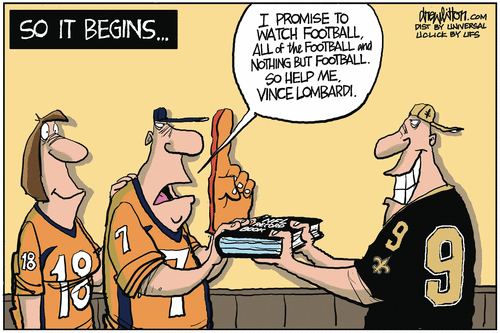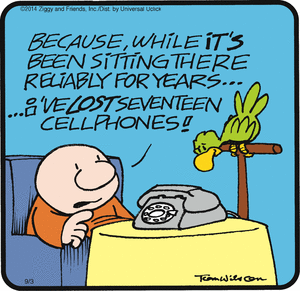This
past spring, Cecily McMillan rode a bus across a bridge to Rikers
Island, home of the notorious New York City jail. When the Occupy Wall
Street activist was released nearly two months later, she had left her
old self behind.

I didn't cry my first night in jail.
By
the time I got through the 12 hours of intake — the lines, the
fingerprints, the strip search — it was 4 a.m. In a dorm with 50 women, I
lay on a cot smaller than a twin bed, with a mattress so thin, I could
feel the cold metal beneath my back.
I didn't feel much of
anything emotionally, except a vague sense of resolution. At least I
knew my fate now. I was a convicted felon.
I
had spent two years awaiting a trial, accused of assaulting a policeman
at an Occupy Wall Street protest in New York City in March 2012. As I
remember it, the officer surprised me from behind, grabbing my right
breast so forcefully, he lifted me off the ground. In that moment, my
elbow met his face.
At the time, I was a graduate student at The
New School for Social Research and volunteering as a union organizer, in
fact helping police negotiate contracts. I was studying nonviolent
movements and had been inspired by pacifists like Bayard Rustin, the
activist who helped Martin Luther King Jr. My arrest was the opposite of
everything I stood for.
I remember someone pushing me to the
ground, my face hitting a grate. Next thing I knew, I was strapped to a
gurney, my skirt up above my hips. I had bruises across my body and a
handprint on my chest. Officers were joking about my "Ocupussy." I
learned later that I had been beaten on the head, triggering a seizure.
Videos posted online showed people shouting "Help her!" amid the seizure
while the cops stood by. The first time I saw those videos, I watched
in horror — I couldn't believe that I was the person going through that
ordeal.
At the trial, I sat trying to appear calm as I got ripped
apart. Prosecutors said I had inflicted the injuries on myself. They
said I hadn't immediately mentioned being grabbed — but I was completely
disoriented after the seizure. The judge didn't allow evidence that my
attorney wanted to show the jury, including a range of videos of the
incident. I was found guilty and sent to Rikers Island to await my
sentence. My lawyer Marty Stolar, a human-rights expert and watchdog for
Occupy who had taken my case for free, was so shocked at the verdict
that he was visibly shaken.
The prosecutors had offered a deal
that would have kept me out of jail, but I refused to plead guilty to
something I didn't do, especially a felony. So I sacrificed my freedom
for my convictions. I will never regret that. But I will never be the
same person after Rikers Island. I know now what it's like to lose your
freedom, to abandon any sense of personal space, and to face a level of
humiliation that is almost impossible to describe.
 Cecily was unable to stand during her arrest
Cecily was unable to stand during her arrest.
Those first
few days, I tried to figure out "how to jail." I knew I would have to
make friends fast. I started by giving people my food — turkey sausage,
beans, canned vegetables. I tried to think of Rikers as a study in
society.
That
feeling didn't last long. On my third or fourth night, I sobbed, my
face buried in the frayed blanket. I couldn't let anyone hear. Crying at
night makes the correction officers, or COs, slam on the lights and
shout, then everyone is awake and furious. But something funny happened
that night too. A woman started singing softly, "Wimoweh, wimoweh."
Others joined in: "In the jungle, the mighty jungle, the lion sleeps
tonight." Women in their teens, in their 80s, were singing that song. It
felt like a warped summer camp. I realized, we're all in this together.
I
was issued a shapeless jumpsuit and moved to a new dorm. I also learned
my sentence: 90 days. I felt like the system had been stacked against
me. I was a representation of a movement, not a person. But I stayed
focused. I worked on my graduate thesis in jail.
One of my first
friends was Fat Baby, a young mother in jail on a drug charge. She
started catcalling in Spanish: "Hot legs, mama." I'm part Mexican, and I
knew what she was saying. I told her, "That's no way to speak to a lady
— you sound like a construction worker." We became pals. I observed
her, learning to keep my eyes down, not to stand with my hands on my
hips or do anything that conveyed confidence.
Being polite will
also get you in trouble. I learned that during a battle to get my
medication for ADHD. Everything in prison is about waiting and
obstruction. You spend hours waiting in lines — for a mail pass, for the
phone — only to be denied for some arbitrary reason. I knew that
without my meds, the upheaval in my life would spark an anxiety attack,
which could be mistaken for a tantrum, getting me sent to solitary.
Thanks to friends who raised a ruckus with public officials, I got the
medication. But when I was meeting with the pharmacist, I couldn't hear
him, because a CO was shouting in the hall. I called out, "Sir, I'm
sorry, but I'm having trouble hearing."
Mistake. "Are you telling
me to shut up?" he yelled, launching into a tirade. Later, when I stood
up to leave, I apologized. He barked, "You white bitch, I told you to
shut the fuck up!" My eyes went to his badge. "You want to see my
badge?" he yelled. He rammed it into me, sending me flying backward. You
are supposed to be able to report grievances, but I never said
anything. I was afraid of retaliation.
I had joined Occupy Wall
Street after moving to New York City for grad school. I saw people
living on the streets, but no one seemed to hear them. The movement was
getting started in August 2011, and I liked its objection to corporate
greed and income inequality. I wasn't the most popular protester because
I didn't fit the mold. With my iPad and secondhand Manolo heels, I was
called the Paris Hilton of Occupy.
But people didn't know my past.
I had grown up in a trailer park in East Texas with a single mother and
my brother. My mom had such dignity that I didn't realize we were poor.
Once, during a food drive at school, I emptied our cupboards and packed
up the cans. I didn't know they had been donated to my own family.
I
was an idealistic kid. I lobbied to abolish the school dress code, and I
was spanked with a wooden board when I refused to do morning prayers at
my public school. I spent summers in Atlanta with my father and liked
the big city. I got a scholarship to Lawrence University in Wisconsin
and then moved to New York.
Occupy Wall Street set up camp in
Zuccotti Park in Manhattan's Financial District on and off starting in
September 2011. On St. Patrick's Day, I was dressed in green when I went
to the park to pick up a friend to go out to a bar. But police were
sweeping through the park, so I started walking away. That's when my
troubles began.
At Rikers, word spread that I was part of the
Occupy movement, and a few of the guards secretly told me they liked the
group's message. Their lives weren't so great: They were in jail too
and always getting yelled at by higher-ups. They were from the same
streets as the criminals.
That's not to say the indignities weren't rampant. People often ask if jail is like
Orange Is the New Black,
but I see nothing similar in incarceration and entertainment. Every day
in jail, you are belittled and berated. There's no library, no
computers or cell phones. A TV blasts
Criminal Minds. I went through a surreal fight for weeks just to get a pair of sneakers so I could run around the yard.
Before
and after seeing visitors, you have to strip naked and squat to prove
you aren't hiding contraband. And on random nights, guards burst into
the dorm in full riot gear. You line up while 50 women are
strip-searched and X-rayed in a special chair. Next, you return to your
bed and hold up the mattress while the officers dump out the two blue
buckets where you keep personal items, confiscating whatever they feel
like. It looks like a tornado hit the room.
In my buckets, I
had 700 letters from supporters — it took me hours to get them back in
order after one search. I kept my buckets very organized, much to the
amusement of other inmates. "White girl doing her buckets again," they
would say.

One day, someone stole something from my buckets: a
small radio. That's when I met my friend Ida, an older inmate. "You
might want to move to a less-trafficked neighborhood," she said. We
called our beds houses and divided the dorm into "neighborhoods." People
had to respect their neighbors, not invade other homes by stepping too
close. I moved to Ida's neighborhood.
For me, the medical
situation was a nightmare. When I tried to get my birth-control shot, I
was told I had to get a Pap smear. I was warned the examiner might be
"handsy." I was told I might have cervical cancer. I did not. I lost a
friend called Jack, who died after coughing up blood for days. She
should have been in the infirmary ... better yet, a hospital.
Over
the weeks, I recognized how strong these women were to survive in such
an oppressive place. You get a sense of how common the female experience
is. Every woman I met had been sexually assaulted. And they were all on
the phone every day, running families from behind bars, reminding
husbands and children to pay bills. I learned about myself too. As a
student, I was always busy theorizing about society, but in Rikers, I
was part of a society. I listened and made friends and became more in
touch with myself and other people.
My release came after 58 days.
I lost 17 pounds. Now I'm on probation for five years. As a felon, I
can't vote for the next seven years. My lawyer is appealing my
conviction.
Even being set free became a trial. On the day of my
release, my friends on the outside had helped me set up a press
conference across the Rikers Island bridge, to speak for the women in
jail. But a CO told me he had been ordered to drive me to a subway
station 45 minutes away. I protested but no one would help, so that's
where I ended up.
I borrowed a stranger's phone to call my
friends, who brought me back to the bridge. I gave my press conference,
describing how the women were treated. These women had sustained me,
becoming my friends, my confidantes and advocates. And now I am their
advocate. I walked into Rikers Island as part of one movement and left
as part of another.






























